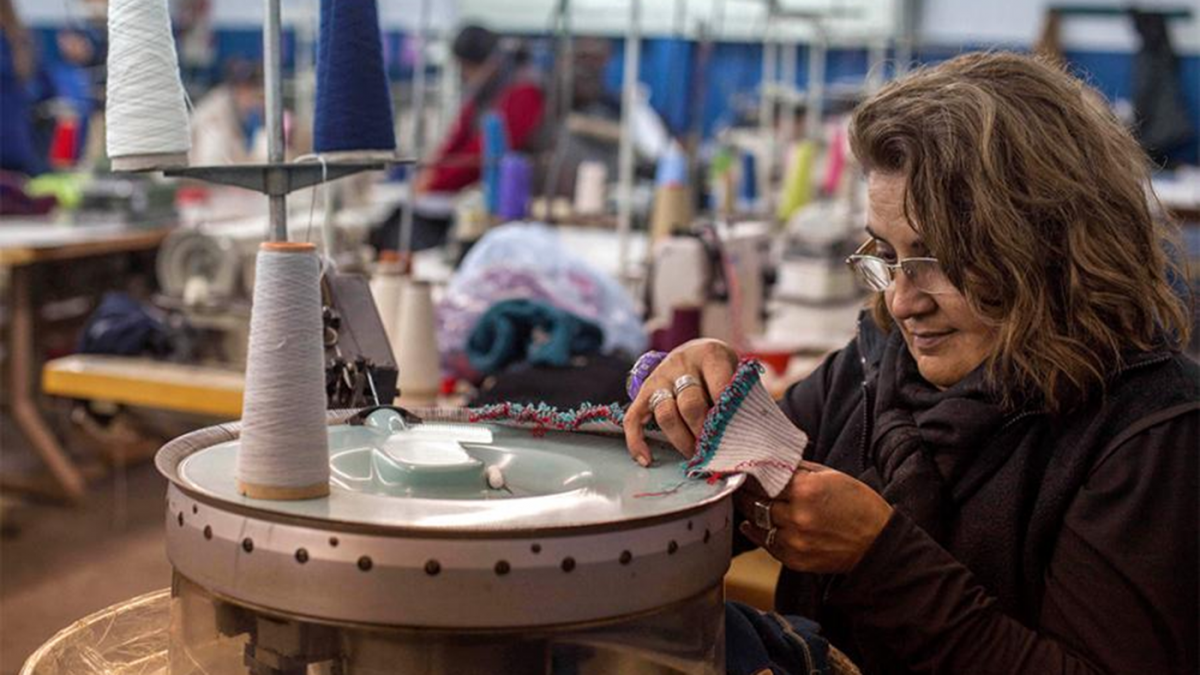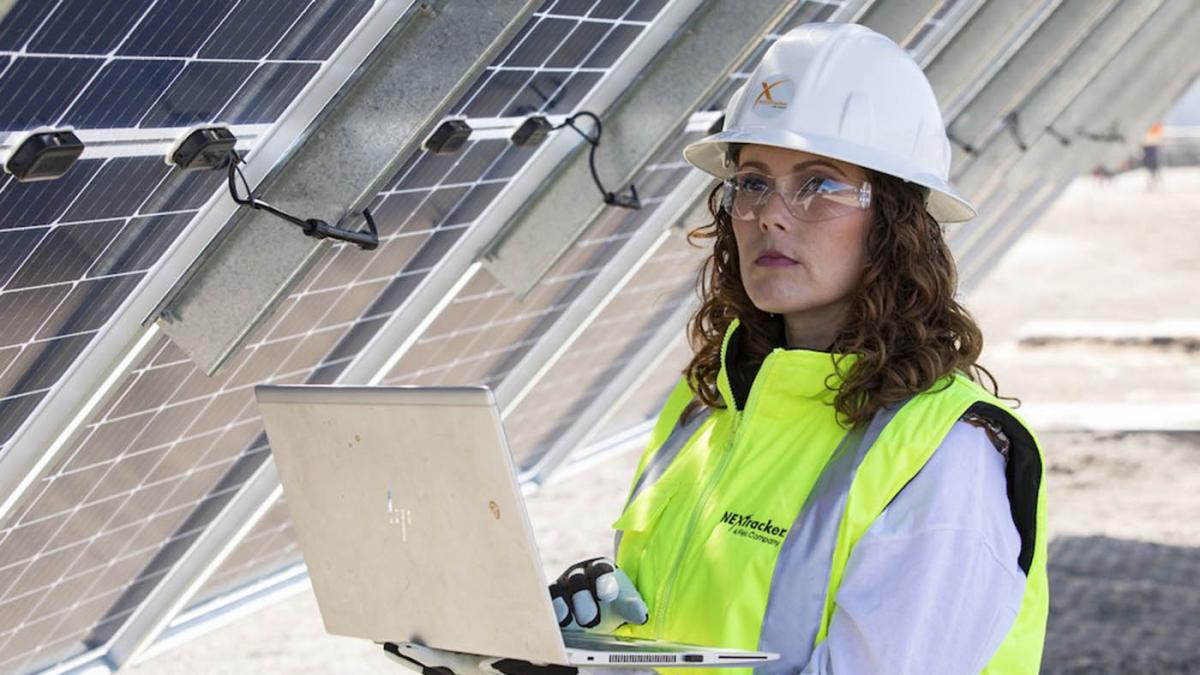 The female presence decreases as the size of the company increases: in MSMEs, 1 out of 8 people in decision-making positions is a woman and in large companies 1 woman for every 10 men. / Photo: Energy
The female presence decreases as the size of the company increases: in MSMEs, 1 out of 8 people in decision-making positions is a woman and in large companies 1 woman for every 10 men. / Photo: Energy
30% of jobs in the renewable energy industry in Argentina are occupied by women, with greater participation in wind power generation projects, according to a report prepared by the Inter-American Development Bank and the Renewable Energy Women’s Association (Ames).
When segmenting by type of activity, within the renewable industry, in those dedicated to wind sources the presence of women stands at 30%, while it drops to 11.3% in hydroelectric plants and 9.9% in thermal.
“About 30% of the people employed in wind power plants are women, followed by solar power plants and small hydroelectric projects, with 21.6% and 16.7% respectively. It is observed that female labor participation decreases in traditional sectors such as hydroelectric plants (11.3%) and thermal plants (9.9%)“, the report details.
This first study on Gender and Energy in Argentina aims to identify the current scenario of women and their working conditions as well as the existing gaps and possible challenges.
This first study on Gender and Energy in Argentina aims to identify the current scenario of women and their working conditions as well as the existing gaps and their possible challenges.
For this purpose, In 2019, the Ames association emerged, which promotes female participation at all levels of the sustainable energy sector.which promotes plurality in the technical, professional and decision-making spaces, while at the same time preparing with other entities surveys whose information is key in the development of gender policies and programs.
 Photo: File
Photo: File
Among the main actions they promote Working Groups such as UN Women training projects, mentoring and leadership spaces for women in the sector and environmentally sustainable energy transition projects.
Among the main actions they promote Working Groups such as UN Women training projects, mentoring and leadership spaces for women in the sector and environmentally sustainable energy transition projects
The president of Ames, Cecilia Giralttold Telam that the transition to a renewable energy system “generates a series of social, environmental and economic benefits such as job creation for female professionals”.
“We believe that the renewable energy sector is softer than oil and gas because the working conditions for women are friendlier. In Argentina the industry emerged from the Renovar program in 2016 where many women approached these issues even to train, men and women were trained in the subject of renewables and that capacity is installed today,” he said in dialogue with Télam
“We believe that the renewable energy sector is softer than oil and gas because working conditions for women are friendlier” Cecilia Giralt
This industry provides professional opportunities for women who have an interest in clean energy and sustainability.“especially because of the problems we have with oil, we are currently going through an energy transition that is from the oil economy to renewable sources that are transforming the productive and energy chains,” he added.
Regarding this issue, the report underlines that in companies that generate renewable energy, 30% of women are employed in positions that require different levels of training in science, technology, mathematics and engineering (STEM for its acronym in English), while 76% of men are working in some position with these characteristics.
Giralt remarked that positions in STEM areas “allow them to improve their income and participate in the design of infrastructure, which affects productivity and economic competitiveness.”
For this reason, she stressed the importance of working with schools and universities to promote the interest of more women in these areas.
As for the region, in Chile women occupy 23% of the positions with STEM training in the renewable energy segment and in Uruguay 14%,” the report detailed.
 Foto: ExpoChinachub
Foto: ExpoChinachub
On the other hand, the work also inquired about the participation of women in decision-making positionswhere the female presence decreases as the size of the company increases: In MSMEs, 1 out of 8 people in decision-making positions is a woman and in large companies 1 woman for every 10 men.
This low participation rate is justified by the fact that “the industry has been characterized by having a long history where decision-making positions have traditionally been held by men, therefore, it requires greater efforts in terms of gender equality policies and staff turnover,” the survey specified.
In that sense The head of AMES values institutional policies that promote diversity and avoid vertical segregationespecially in decision making.
Likewise, it expresses that from the entity they work in coordination with various actors from companies, educational institutions and international organizations such as the IDB,
“This year we launched meetings that seek to promote gender equality in technical and STEM (science, technology, engineering and mathematics) careers, which are aimed at students of technical education and professional training, which have a federal scope since they are broadcast from the YouTube channel of the Ministry of Education (https://www.youtube.com/@CanalMinEduRN)”.
“The presence and contribution of women in this area is fundamental, above all, to cover the demand for professionals in an area of great potential, in addition, it is strategic to generate networks of women in the sector as well as with other industries that allow better working conditions and professional growth for women”, concluded Giralt.


